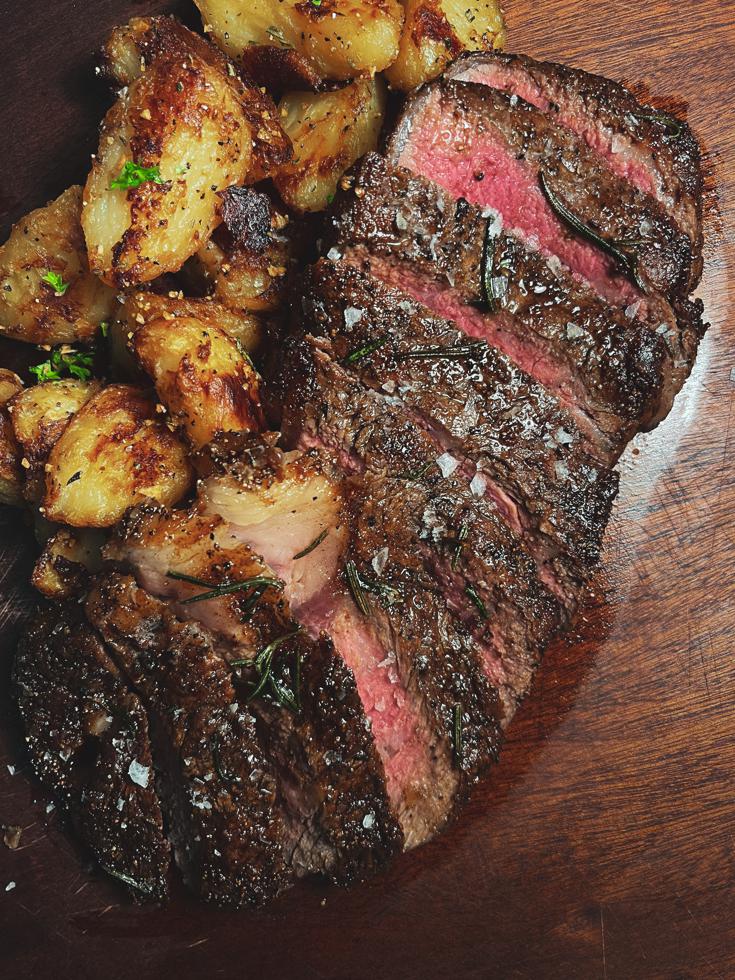Summary. This article takes a look at the possibility of a meat-only diet and its effects on human health. It points out that while some people have experienced strong results from eating an all-meat diet, such diets lack essential vitamins and minerals and can have negative long-term consequences. The article recommends a varied diet of whole grains, fruits, and vegetables in addition to meat and fish in order to ensure a balanced and healthy diet for good health.
It’s no secret that meat is an essential part of many diets. But is it possible to be healthy on an only meat diet? The idea of eating only meat for optimal health has been gaining traction lately, but is it a viable long-term nutrition plan? In this blog post, we’ll explore the pros and cons of an all-meat diet, examine the scientific research behind it, and answer the question: is it healthy to go on an only meat diet? For those unfamiliar, an all-meat diet is generally defined as consuming exclusively meat sources like beef, chicken, pork, lamb, and other game meats. This also includes some fish, though typically not seafood such as shellfish.
Although the all-meat diet is a novel concept, the scientific research behind it is still relatively sparse. So far, there have been some studies that suggest that a carnivorous diet may help with weight loss, reduce inflammation, and improve overall health. However, there is also some evidence that suggests long-term consumption of only meat can lead to deficiencies in certain vitamins and minerals. So what should you make of all this? Is an all-meat diet really healthy, or is it just a fad?
We’ll take a closer look at the potential benefits and risks of an only meat diet, and provide some practical tips for incorporating meat into a healthy nutrition plan. Are you considering an all-meat diet? Do you think it can be a healthy long-term nutrition plan? Have you tried it, and if so, what was your experience? Share your thoughts and questions in the comments section below!
Exploring Nutritional Content of Meat

We’ve all heard about the merits of a plant-based diet. But what about an “all-meat” diet? Can it really be healthy? While this type of eating may be an acquired taste, the answer is yes – it is possible to be healthy on an only-meat diet. The key to a healthy all-meat diet lies in selecting the right kinds of meats and in being mindful of portion control. Nutritional information for different types of meat varies due to different processing methods.
Pork, on the other hand, is lower in fat and higher in zinc, selenium, and vitamin B1It is important to be mindful of saturated fats in the meats that you choose to eat on an only-meat diet. Saturated fat should make up no more than 10% of your total calorie intake. The amount of saturated fats present in different cuts of meat can vary significantly. For example, pork butt contains almost twice as much saturated fat than does a ribeye steak.
When preparing your meals, practice mindful eating and portion control to ensure you are getting the most nutritional value from the meals. Finally, it is important to understand the risk of an all-meat diet. Eating too much red meat can increase your risk of certain cancers, so it is important to monitor your intake of red meat. Additionally, eating an all-meat diet can also leave your body deficient in certain vitamins and minerals that can only be found in plant-based foods. Therefore, it is important to supplement with multivitamins in order to ensure that you’re getting all of the essential vitamins and minerals that your body needs. By selecting the right kinds of meats and being mindful of portion control, it is possible to maintain a healthy lifestyle and enjoy the benefits of an all-meat diet.
Health Advantages of a Meat-Only Diet

It’s a topic that many people have wondered about: is it possible to be healthy on an only meat diet? The simple answer is yes, according to many experts. A meat-only diet can be a great way to stay healthy, as long as it’s done in a healthy and balanced way. As with any diet, the key with a meat-only diet is to make sure you’re getting the right types of meats. This means opting for lean cuts of meat from sources that are grass-fed and pasture-raised, as these tend to be higher in essential nutrients. It also means limiting your intake of processed meats, like bacon and sausage, that are usually high in sodium and saturated fat.
Healthy fat sources, like avocados and nuts, should be included in your daily meals. You can also get a variety of vitamins and minerals from seafood, legumes, and whole grains. These can include essential vitamins like vitamin B-12, which is hard to get from food sources without including animal products. When done in a healthy and balanced way, a meat-only diet can offer many of the same health benefits that vegetarians and vegans experience. These include a lower risk for obesity and chronic diseases like heart disease and diabetes.
A meat-only diet can also be a great way to get more environmental sustainability. Organic and sustainable sources of meat are usually more humanely raised, and they also help to reduce the environmental impact of farming animals. In short, it’s possible to be healthy on an only meat diet, as long as you’re doing so in a balanced and sustainable way. With lean meats, healthy fats, and plenty of vitamin and mineral sources, a meat-only diet can offer many benefits. Just make sure to choose sustainable sources of meat, and to supplement your nutrient needs with other plant-based sources.
Possible Risks of Eating Only Meat

Eating only meat has become increasingly popular in recent years as some people opt to follow carnivorous diets. After all, meat is packed with protein, iron, and other essential vitamins and minerals that our bodies need. However, eating only meat has potential risks that should be considered. Though it is possible to be healthy on an only meat diet, a variety of other dietary components should be incorporated, if possible, to ensure that an individual is getting the proper nutrition to stay healthy. For starters, an only meat diet can be deficient in important vitamins and minerals, including folate, fiber, vitamins C and E, and magnesium. Folate in particular helps our cells and tissues grow and function properly and plays a role in preventing anemia.
Eating only meat means that an individual does not get these essential vitamins and minerals and therefore must supplement their diet in some way. In addition, an only meat diet can lead to higher levels of dangerous saturated fats and cholesterol. Eating too many fatty cuts of meat can increase the risk of developing heart disease, stroke, and other related conditions. Again, if an individual wishes to eat only meat, they should be selective in terms of the types of meat they consume. Leaner cuts are healthier and will ensure that an individual gets the nutrition they need without overexposing themselves to unhealthy fats.
Eating only meat is not a common or accepted practice, and dining out can be difficult. Additionally, an only meat diet may be expensive if an individual prefers to buy organic or grass-fed meat. In order to make an only meat diet more sustainable and affordable, it is important to eat a variety of meat sources. To summarize, while it is possible to be healthy on an only meat diet, it is important to remember that there are some potential risks. Balance is key; incorporating some other sources of nutrition will help to ensure that an individual is getting the right amount of essential vitamins and minerals, without overexposing themselves to unhealthy fats and cholesterol. Additionally, an only meat diet may be socially isolating and expensive, so it is important to consider these factors as well.
Alternatives to Meat-Only Diet to Stay Healthy

Is it possible to be healthy on an only meat diet? This is a question that has become increasingly relevant as more and more people move towards plant-based diets, or trying to reduce their meat intake. While it is possible to be healthy on a diet that consists solely of meat, it is not recommended as such a diet can lack vital essential nutrients and put a strain on your body. Thankfully, there are plenty of ways to ensure that you can still eat a healthy and balanced diet while reducing your meat consumption.
Fruits and vegetables are also full of fiber, which can help to keep you full while still providing you with all the essential nutrients you need. Additionally, adding in a few additional sources of protein such as legumes, nuts, and chickpeas can also help you to still get the essential proteins and amino acids your body needs, without relying solely on meat. If you really don’t want to reduce or eliminate meat from your diet, there are still some options to consider.
Additionally, opting for leaner cuts of meat, such as chicken or fish can help to reduce the amount of saturated fat and cholesterol in your diet. Overall, it is very possible to be healthy on an only meat diet, but it is not recommended as it can lack essential nutrients and put a strain on your body. By adding in fruits, vegetables, and additional sources of protein you can still get all the essential nutrients you need without relying solely on meat.
Analyzing the Evidence on Nutrition Research Related to an All-Meat Diet

The question of whether it is possible to be healthy on an only-meat diet has become increasingly popular in recent years. With the rise of popular diet trends such as paleo and keto, many people are exploring the options of eating an all-meat diet in an effort to achieve better health. As more and more people consider this way of eating, it is important to evaluate whether or not there is any evidence to suggest that it is a healthy and viable option. The actual evidence related to the health benefits of an only-meat diet is surprisingly limited, and much of it is contradictory.
Due to the lack of definitive evidence, it is difficult to make a definitive conclusion on the health benefits of an all-meat diet. Fortunately, there are some steps you can take to ensure that an only-meat diet is as healthy as possible. First, it is important to ensure that your diet contains a variety of nutrient-rich meats such as fish, chicken, turkey, and lean cuts of beef and pork.
Additionally, it is important to ensure that your diet contains healthy sources of fat, such as nuts, avocados, and olive oil. Finally, you should also focus on adding plenty of vegetables, whole grains, and other sources of fiber to your diet, which can help to decrease the risk of certain diseases, including heart disease and type 2 diabetes. Overall, while it is possible to be healthy on an only-meat diet, it is important to make sure that your diet is balanced and nutrient-dense. By ensuring that your diet includes plenty of various meats and healthy sources of fat, as well as plenty of vegetables and other fiber-filled foods, you can can rest assured that your all-meat diet is a healthy and viable option.
Tips for Eating a Healthy Meat-Only Diet

Eating a healthy meat-only diet can be a tricky balance to maintain. Many people are quick to label it an unhealthy or unsustainable option, and this isn’t necessarily false. Eating only meat, without a proper balance of other essential nutrients, can lead to a number of negative health problems in the long-term. This being said, it is possible to maintain a healthy meat-based diet, provided you take the necessary steps to make sure your nutritional needs are being met. First and foremost, it’s important to ensure that the meat you’re consuming is as high-quality and organic as possible.
Additionally, your meat should be a mix of both lean and fatty cuts, as lean meat alone won’t provide you with the necessary vitamins and minerals. Additionally, be sure to eat a variety of different meat sources, as each type of animal provides vastly differing nutrients. Fruits and vegetables are often considered essential components of a healthy diet, and though it’s possible to stick to a meat-only diet without them, it’s prudent to add a few servings in each week. If you don’t want to resort to supplements, you can get all the nutrients you need from nutrient-dense vegetables like broccoli, kale, and peppers or low-sugar fruits like oranges, apples, and strawberries.
Dehydration can lead to a number of health problems, so make sure you’re drinking plenty of water each day. Additionally, consider sipping on bone broth or consuming foods like fermented vegetables, which contain probiotics to promote healthy gut bacteria. Overall, a meat-only diet can be a healthy option, but it’s important to investigate the kinds of meat you’re consuming, supplement with fruits and vegetables, and stay hydrated. With these tips, you can confidently enjoy a healthy, meat-only diet and maintain your health for the long-term.
Delicious Recipes to Try on a Meat-Only Diet

It’s a fact that meat can provide us with plenty of essential nutrients and energy, but is it really possible to sustain a healthful lifestyle when the only foods you eat are meat-based? The answer is yes! Many people may believe that a solely meat-based diet could be detrimental to health, but with its abundance of vital vitamins, minerals, and other important nutrients, it’s more than possible to enjoy a healthy and balanced diet as long as a few guidelines are observed. First and foremost, you must ensure that you are consuming an ample amount of proteins from a variety of sources. When selecting meat for a nutritious diet, choose lean cuts of chicken and turkey, cuts of beef like top round, top sirloin, and flank steak, and fish, like salmon and halibut.
In addition to high-quality proteins, an important part of your meals should come from fresh vegetables. Vegetables not only detoxify harmful substances from your body but also contain essential antioxidants and minerals to help maximize your health. When selecting vegetables, choose from a wide variety, as each color offers its own unique benefits, like beta-carotene, lutein, and folate. For optimal nutrition and health, you should also include healthy fats to your diet. Fats are an integral part of a balanced diet and should come from sources such as olive, flax or coconut oil, avocados, and nuts.
Fruits are loaded with antioxidants and other essential nutrients that can help you reach your daily nutrient goals. You don’t have to overindulge with fruit, as small and frequent portions can effectively do the trick. At the end of the day, eating a diet rich in proteins, vegetables, and healthy fats along with periodic fruits is the simplest path to take if you’d like to stick with a meat-based diet. Fortunately, you can easily find a plethora of delicious recipes that are meant to cater to your dietary requirement so that you can feel nourished, energized, and healthy!
Wrapping Up
Is it possible to be healthy on a meat-only diet? For many, the answer to this question may be a resounding “no. ” But, after a closer look at the evidence, this may be an oversimplification of the issue. For a few, eschewing all other food groups and sticking solely to meat may be a viable option—but it’s an important caveat that the ‘right kind’ of meat must be eaten for it to be beneficial. Consuming lean, high-quality cuts of meat with the right balance of macronutrients can be extremely beneficial to one’s health.
But those who consider such a diet should be sure to include fishes, eggs, and dairy options when and where possible, as well as a variety of vegetables and other plant-based options to extend the spectrum of essential nutrient intake. It is essential to recognize that following a meat-only diet has its risks, and so health professionals tend to view it as a temporary dietary restriction to suit specific situations or goals. Those on such a diet may be required to take specific vitamin and mineral supplements to make up for the lack of other nutrient sources. Here, inpatient medical guidance should always be sought.
However, it is important to keep in mind that this is not a sustainable diet in the majority of cases, and vitamin and mineral supplements may be required. The best way to achieve a truly balanced and healthy diet is to include an appropriate and varied combination of all food groups. At the end of the day, the debate around the health benefits (or lack thereof) of a meat-only diet continues. Ultimately, the decision about what to eat depends on your individual goals, situation, and—most importantly—on seeking the advice of a physician. Taking into account current scientific evidence, as well as the risks, the verdict is that a meat-only diet is not suitable for everyone—but for the right person with the correct supplementation, it can be a successful form of nutrition.
Frequently Asked Questions
Is A steak a meat or beef?
A steak is a cut of beef.
What is the best steak meat?
This is a matter of personal preference, but generally, the best steak cuts are ribeye, sirloin, porterhouse, and New York strip.
What are the categories of meat?
- Beef
- Pork
- Poultry
- Lamb
- Veal
- Fish
- Organ Meats
- Sausage
- Deli Meats
Is A steak a beef or pork?
A steak is a cut of beef.
What kind of meat is a steak?
A steak is a cut of beef, typically a larger, thicker cut of meat.
Used Reference Links:
https://www.mygenefood.com/blog/why-the-carnivore-diet-is-unhealthy-what-to-try-instead/
https://healthfeedback.org/can-you-achieve-balanced-diet-eating-only-meat-look-scientific-evidence/















